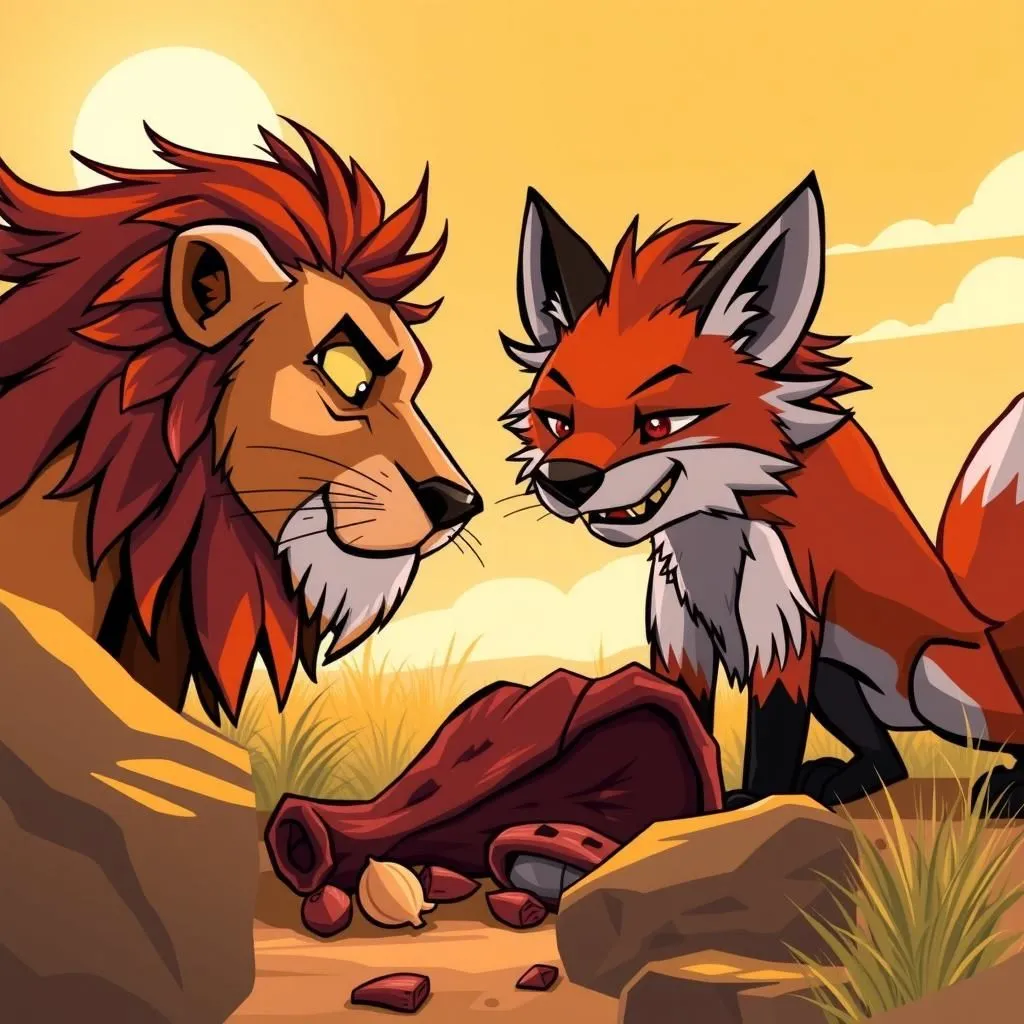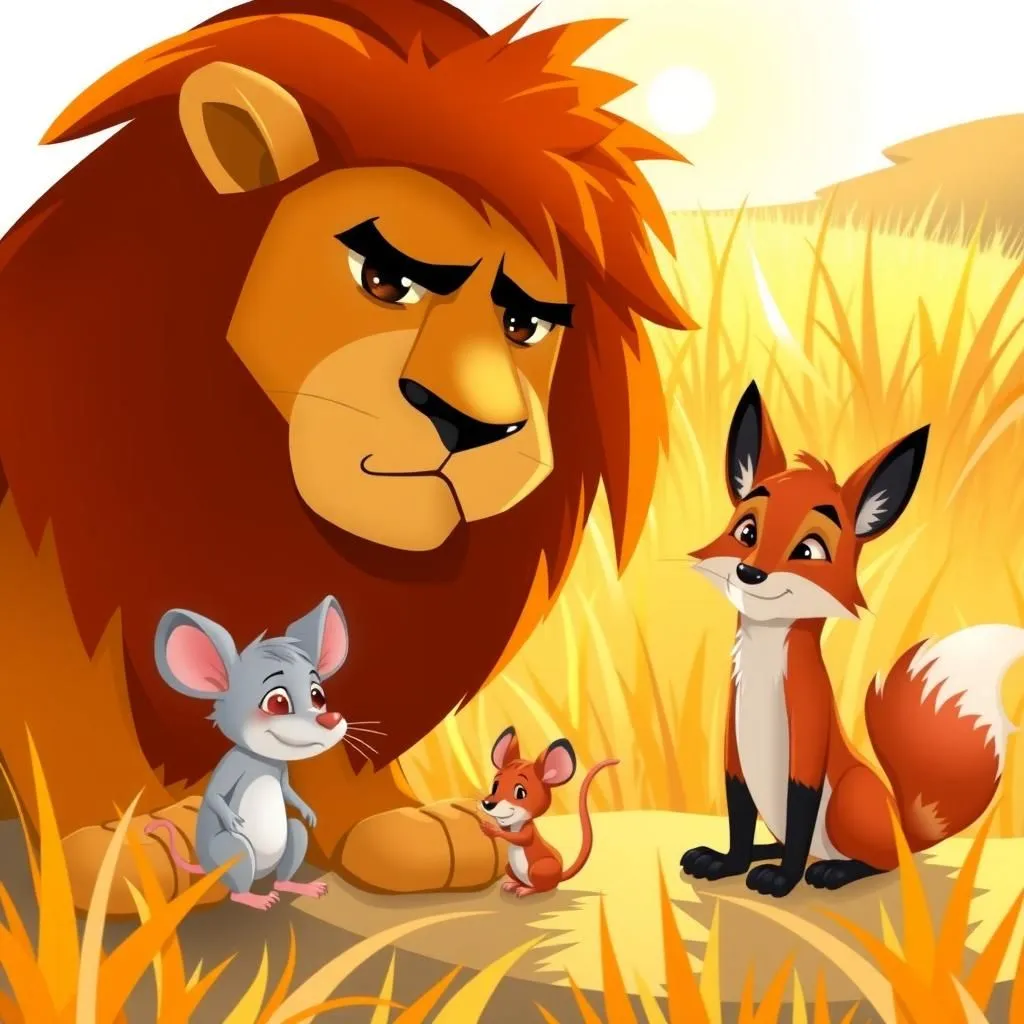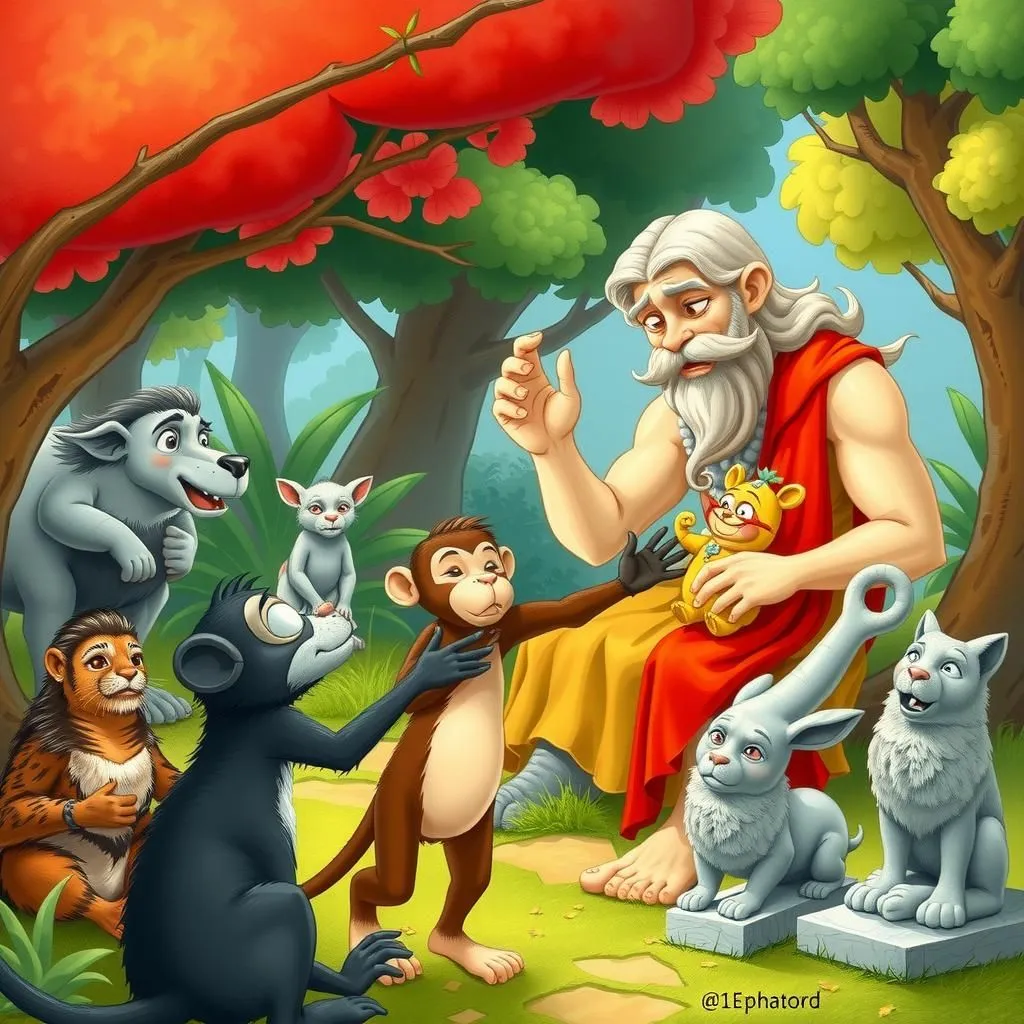
The Lion the Fox and the Ass
In the short moral story "The Lion, the Fox and the Ass," three animals agree to share the spoils of a hunt. After the Ass is devoured by the Lion for dividing the loot equally, the Fox wisely learns from this misfortune and takes the largest portion for himself when asked to divide the spoils. This tale, part of folklore and moral stories, emphasizes the importance of learning from others' experiences, making it a fitting choice for bedtime moral stories.


